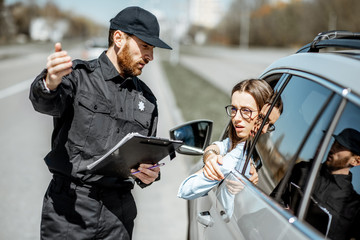

As a parent, finding out that your child has been charged with a crime can feel like a nightmare come true. Fortunately, Georgia law does recognize that younger people make mistakes, and in most cases, your child will go through the juvenile court system, as opposed to being tried as an adult. Still, regardless of the crime your child is accused of, hiring a knowledgeable and skilled Atlanta juvenile crime lawyer is paramount. Williamson Legal is dedicated to representing juveniles and their parents, and we stand ready to fight for you and your child’s future, too. Contact a Cobb County criminal defense lawyer for a free case evaluation today.
In Georgia, a “juvenile” typically refers to any individual under the age of 17 who has been accused of committing a criminal offense. For most criminal matters, this means that if your child is 16 years old or younger at the time of the alleged offense, their case will generally be handled in juvenile court. However, there are exceptions, especially when it comes to very serious charges, or if the individual is close to the age threshold.
It’s also important to note that Georgia law makes a distinction between different types of cases involving minors. For example, a child under 18 might still be considered a juvenile for dependency cases or for being “unruly” (such as running away or skipping school), even if they’re too old to be treated as a juvenile for certain criminal charges.
The juvenile court process in Georgia is very different from the adult criminal justice system, both in its structure and its overall philosophy. While adult courts focus on punishment, the juvenile system is designed to prioritize rehabilitation and give young people the chance to get back on the right track.
Once a juvenile is taken into custody, their case typically begins with a detention hearing to determine whether they should be held or released while their case is pending. If your child is detained, this hearing must occur quickly, usually within 72 hours. From there, the process may move to an adjudicatory hearing, which is essentially the juvenile version of a trial, where the judge determines whether the charges are supported by the evidence.
There is no jury in juvenile court; only a judge hears the case and makes the decision. If the judge finds that your child committed the alleged act, the court moves into the “disposition” phase, where consequences are determined. These can range from probation or counseling to placement in a juvenile detention facility. In some cases, your child may be eligible for diversion programs or other alternatives aimed at avoiding a permanent criminal record.
Throughout this process, your child has legal rights, including the right to an attorney, the right to remain silent, and the right to present evidence and witnesses.
Yes, under certain circumstances, a juvenile in Georgia can be tried as an adult. This is known as a “transfer” or “waiver” of jurisdiction, and it’s something that usually happens when the charges are particularly serious, such as murder, armed robbery with a firearm, or aggravated sexual offenses.
Under Georgia law, children as young as 13 can be tried in adult court for certain violent felonies. In these situations, the prosecution can request, or in some cases, the law mandates, that the case be removed from juvenile court and transferred to superior (adult) court. Once transferred, the child is treated as an adult for all purposes, including sentencing.
There are also cases known as “automatic transfers,” where state law requires the case to be handled in adult court if specific conditions are met, such as the juvenile having a prior record or the offense falling under a list of designated crimes.
Being tried as an adult exposes a child to far harsher penalties, including the possibility of time in adult prison. That’s why it’s absolutely crucial to have a strong legal advocate who can argue against transfer and fight to keep the case in the juvenile system, where the focus remains on rehabilitation, not just punishment.
At Williamson Legal, we know how to handle these high-stakes cases. If your child is at risk of being tried as an adult, we will work aggressively to protect their rights and pursue every legal avenue to keep the matter in juvenile court.
With your child’s future on the line, you can’t afford to proceed without a dedicated juvenile crime defense lawyer in your corner. If you’re reading this, you’re in the right place. Contact Williamson Legal for your free initial consultation today.
© 2025 Williamson Legal, P.C.. All rights reserved. Attorney advertising.